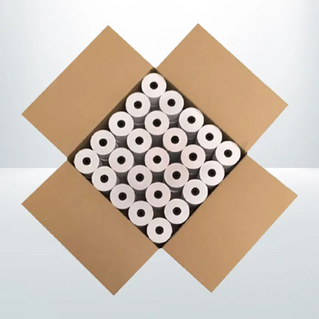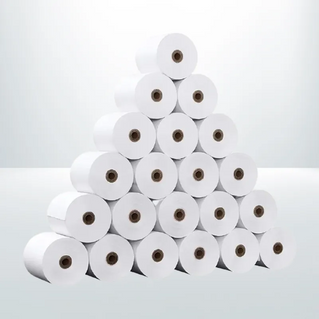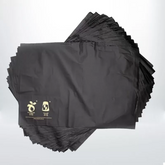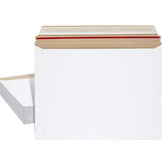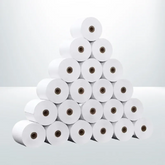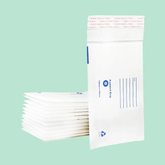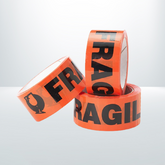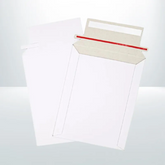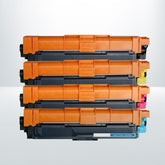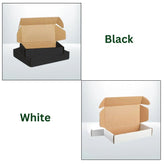When it comes to recycling thermal receipts, you need to be cautious. Most thermal receipts, including those used in EFTPOS rolls, contain BPA or BPS, which makes them impractical to recycle. These receipts are often excluded from recycling processes, contributing significantly to landfill waste as billions are discarded each year. To ensure proper disposal, it’s important to consult your local waste disposal agency for guidance.
One way to minimize this issue is by opting for digital receipts or choosing Packaging Supplies in Melbourne that offer BPA-free or environmentally friendly options. Staying informed and making conscious decisions can contribute positively toward reducing the environmental impact of thermal receipts.
What Are Thermal Receipts?
To better comprehend thermal receipts, one has to start off with understanding of how the document is printed.
These receipts also employ the thermal paper that does not require ink to print the receipts as we shall see later on. When the printer head become hot an image or a text is developed on the paper so that it can quickly print. This is common in points of sale such as retail and restaurant services since they look for fast turnaround times.
So, you may ask, “Is it possible to recycle thermal paper?” The answer is not that clear.
Although the paper part of it can sometimes be, the chemicals used in thermal paper such as BPA or BPS make it difficult to recycle. This raises the question: What has been debated most regularly in the receipt papers Is receipt paper recyclable?.
These contaminants make it impossible for many recycling facilities to accept thermal receipts and as a result, people are tricked into thinking that all receipts are recyclable.
Is Thermal Paper Recyclable
But is it even possible to recycle thermal paper? The answer is not as simple and straightforward as you would like to expect here. Ordinarily, the Thermal papers may look like ordinary paper but it has a unique layer that makes it to be difficult to recycle. Many recycling centres do not have proper equipment to recycle this kind of paper and so they find their way into the littered heaps.
Here are some key points to consider:Here are some key points to consider:
Chemical Coating: The thermal paper as noted is laced with [BPA] or [BPS] which if included in the recycling stream ends up polluting it.
Limited Facilities: Some states have not given the green light on accepting thermal paper hence it is recommended that its recipients do more research.
Waste Management: Any negligence in the disposal may lead to generation of more wastes and other ecological problems.
Alternate Solutions: A few firms are even currently evaluating using thermal paper, from an environmental sustainability viewpoint.
Consumer Responsibility: Awareness enables you to make the right decisions as to the disposal of receipts.
In other words, despite the fact that most thermal papers cannot be recycled, understanding the issue can help you make better choices.
One should always ensure that he or she is recycling locally and should try to avoid thermal receipts wherever possible.
Is There a Solution to the Receipt Paper Waste Crisis?
There might be some of the shoppers who have no clue that there actually is an issue with the receipt paper misuse but in fact it is an environmental issue. They observe that billions of thermal receipt disposed in the landfill impact the environment have been found to take years to degrade.
The good news? Solutions are being worked out and anybody out there can be among the solution finders.
First, so which first I would like to recommend making digital receipts popular. Now several shops have already implemented this feature usually utilized to get an email or text message about the confirmation of the order. Apart from discouraging the use of paper it also enable convenience in sorting out your records of transactions.
If you still want to be provided with physical receipts, then it is good to opt for firms that use recycled papers or firms which support the policy on recycling.
Additionally, awareness is key. In this way people get to know the harm of thermal paper that comes with hazardous chemicals like BPA and thus there is cause for change and safe thermal paper production. ”
You can also go for local advocacy for the recycling process of thermal paper since every region or country has a unique recycling process.
Safe Disposal of Thermal Receipts
As for thermal receipts, it is highly important to increase people’s awareness of safe disposal and environmental problems. Most of the time people do not know that these receipts contain BPA or BPS which are very dangerous for your health and the environment.
This is not a responsible thing to do as the only thing that can be done with them is to throw them in the trash. However, you can try to prevent it by ensuring that they are disposed off in the right manner.
Is There a Solution to the Receipt Paper Waste Crisis?
Some of the shoppers may have no idea that there is actually a problem with the receipt paper wastage but it indeed is a major environmental concern. They point out that each year billions of thermal receipts end up in the landfill and takes years to degrade.
The good news? Possible solutions are being developed and you are welcome to be among the solution seekers.
First, so which first I would like to recommend making digital receipts popular. Several shops have now embraced this feature commonly applied to receive email or text message notification of the order confirmation. Other than reducing use of paper it also helps in arranging your transaction records in one place.
If you still want to obtain physical receipts, go for firms that use recycled papers or firms that support the policy of recycling.
Additionally, awareness is key. This way, people are able to understand the impact of thermal paper which comes with dangerous substances such as BPA; hence the need to push for change and have safe thermal paper.”
You can also embark on local advocacy for the recycling process of thermal paper which is always unique in every region.
Safe Disposal of Thermal Receipts
When it comes to the safe disposal of thermal receipts, awareness of their environmental impact is crucial. Many people don't realize that these receipts often contain BPA or BPS, chemicals harmful to your health and the environment.
Simply tossing them in the trash isn't a responsible choice. Instead, you can take proactive steps to dispose of them safely.
Here are some essential tips for disposing of thermal receipts:
Avoid regular recycling: Most recycling programs won't accept thermal paper due to its chemical coating.
Seek local disposal guidelines: Check with your local waste management for specific instructions on hazardous waste.
Consider shredding: If you're concerned about privacy, shredding receipts before disposal can minimize risk.
Collect and discard responsibly: Gather receipts in a bag and dispose of them in a designated hazardous waste container.
Educate others: Share this information with friends and family to raise awareness about proper disposal methods.
Alternatives to Thermal Receipts
Finding safer disposal methods for thermal receipts can lead you to consider alternatives that minimize environmental impact altogether. One of the most effective alternatives is digital receipts. Many retailers now offer the option to receive receipts via email or text, which not only reduces paper waste but also allows for easy access and organization.
Another option is using biodegradable paper for receipts. Unlike thermal paper, which contains harmful chemicals, biodegradable receipts break down more easily in landfills. This option helps reduce harmful substances entering the environment.
Additionally, you might explore using reusable receipt books or notepads. These can be particularly useful for small businesses or freelancers who need to track expenses without generating excessive waste.
You can also advocate for businesses to adopt sustainable practices. Encourage your local stores to consider eco-friendly receipt options, and support those that do. By making informed choices, you can help shift the market toward more sustainable practices.
Frequently Asked Questions
Can I Compost Thermal Receipts?
You can't compost thermal receipts because they often contain BPA or other harmful chemicals. Instead, consider recycling them properly or disposing of them in the trash to avoid contaminating your compost with toxic substances.
What Chemicals Are in Thermal Paper?
Thermal paper often contains chemicals like bisphenol A (BPA) or bisphenol S (BPS), which are used for its heat-sensitive coating. Understanding these substances helps you make informed decisions about disposal and environmental impact.
How Do I Identify Thermal Paper?
You can identify thermal paper by its smooth, glossy texture and lack of a traditional watermark. If you scratch it lightly, it turns dark, revealing it's designed for thermal printing, not standard paper recycling.
Conclusion
In conclusion, understanding the challenges of recycling thermal receipts is crucial for making eco-friendly choices. With their unique materials and harmful chemicals, these receipts require special handling. By adopting safe disposal practices and considering alternatives, you can significantly reduce your environmental impact. Whether you're a consumer or a business owner, your decisions can contribute to a more sustainable future. So, take action today—every small change counts in the fight against receipt paper waste!.



